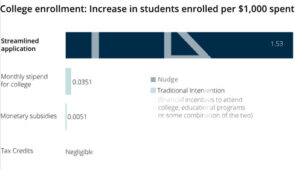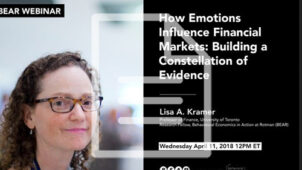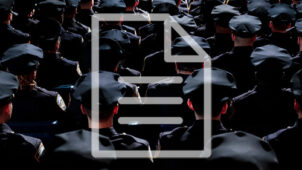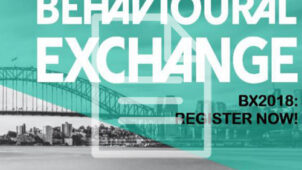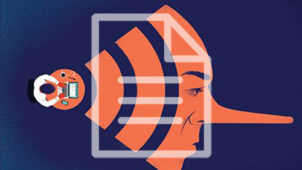In the News
-
Are Nudges Cost-Effective?
The UCLA Anderson Review unpacks a paper co-authored by Shlomo Benartzi that documents the cost-effectiveness of behavioral nudges compared to more traditional forms of government interventions. Hard to argue with those nice bar charts.
-
WEBINAR: How Emotions Influence Financial Markets: Building a Constellation of Evidence
The next BEAR Webinar Series, in partnership with BSPA, will feature Lisa Kramer, presenting her research next week, April 11, 2018, 12:00-1:00 PM ET. This webinar will explore how specific moods and emotions can have important implications for the way financial markets work, for better or worse.
-
Simple Changes to Job Ads Can Help Recruit More Police Officers of Color
“How do we encourage more and different people to apply for public sector jobs, and to the police in particular?”, asks Elizabeth Linos in HBR. In collaboration with the Behavioral Insights Team and the What Works Cities Initiative, she ran a field experiment aimed at opening up the applicant pool to those who may not have considered a career in law enforcement before.
-
In the Wake of Cambridge Analytica
In response to recent revelations about Cambridge Analytica’s role in the US election, scholars had diverse responses. “Use our personal data for the common good”, says Hetan Shah, who gives his thoughts in Nature on what needs to happen next. One researcher worries that legitimate researchers using Facebook data could be collateral damage. Others seek to explain psychographics, the behavioral analysis approach used by Cambridge Analytica, the fallacies of psychographic targeting, the long history of computer science and psychology, and how the Cambridge Analytica apocalypse was predicted in 2007.
-
BX2018 Calls for Rising Star Nominations
BX2018 will gather leading thinkers in Behavioural Insights, and will also confer a Rising Star Award on a junior scholar who is conducting outstanding policy-relevant research in behavioral science. The winner’s research will be showcased at the conference. For more information and to submit your 300 word abstract, please contact [email protected] by Monday 30 April 2018.
-
BETA reports: Helping consumers make smarter energy choices
Two new reports by the Behavioural Economics Team of the Australian Government (BETA) show how drawing on behavioral insights can help consumers make smarter energy choices. Energy labels that make cents: testing energy rating labels on appliances sold online and Saying more with less: simplifying energy fact sheets are now available.
-
The Science of Fake News & How Lies Spread Online
A group of scientists call for a multidisciplinary effort to combat fake news in Science. In the same issue, three MIT professors reveal the results of a study demonstrating that false stories on Twitter spread significantly farther, faster, and more broadly than true ones. Read author Sinan Aral’s op-ed in the New York Times for a summary.
-
BX Conference 2018
The Behavioural Exchange 2018 in Sydney, Australia this June 25-26 is now open for early bird registration. An inspiring program of plenary sessions and journeys exploring a wide range of BI topics is being developed. Keynote speakers include Cass Sunstein and John List. The call for BX Rising Star award nominations and abstracts is forthcoming. For more information contact [email protected].
-
Improving the Summons Process in New York City
Writing on our Behavioral Scientist partner blog Elizabeth Weingarten reports on a new collaboration between the University of Chicago Crime Lab, ideas42, and a variety of New York municipal and state entities to improve the summons process using behavioral science. There are substantial benefits both for the people and the government and, as ideas42’s Alissa Fishbane explains, “they’re scalable, inexpensive, and therefore a potentially powerful tool for other cities.”
-
Redefining Wrong in Poker, Politics, and Beyond
Annie Duke is a former psychology PhD student turned poker champion whose new book, Thinking in Bets: Making Smarter Decisions when you don’t have all the Facts, explains the insights poker (and research) provide on judgment under uncertainty. In this excerpt in the Behavioral Scientist, Duke shows how poker reveals the critical lesson that outcomes are an imperfect gauge of whether or not a decision was correct.
-
How Poverty Changes your Mindset
The Chicago Booth Review surveys the recent literature on the psychological effects of scarcity and its implications for designing effective policy. “It’s important to recognize,” they explain, “that while scarcity can help people focus on costs and benefits, it can also cause stress that shifts attention and steals cognitive bandwidth.”
-
What Google Learned From Its Quest to Build the Perfect Team
With people spending an increasing amount of their time at work in teams, understanding what makes teams effective has become a pressing issue. In the New York Times Magazine Charles Duhigg dives into Google’s attempts to answer this question in the Project Aristotle initiative.
Thinking of Submitting a Paper? Ask the Editors!
Want to submit a paper to BSP but not sure whether you have the right angle?
BSP has a new 'ask the editors' feature available for potential authors. Simply click below to send us an email, and we will respond within 72 hours.
Ask the Editors